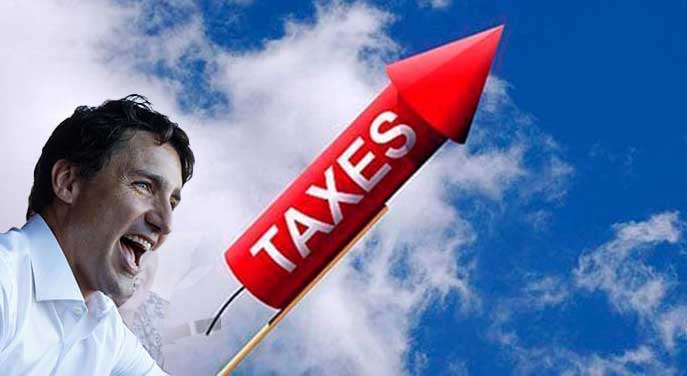 New Conservative leader Pierre Poilievre is correct when he says governments discourage work with taxes and clawbacks.
New Conservative leader Pierre Poilievre is correct when he says governments discourage work with taxes and clawbacks.
The Marginal Effective Tax Rate (METR) measures what government takes from each new dollar earned in taxes and clawbacks of income-related government benefits. In his leadership acceptance speech and an August 19 video called “Make work pay,” Poilievre said a single mom with three kids making $55,000 had an METR of 80 percent.
“Nobody can work for that. It’s not even minimum wage. She’s earning effectively $5 an hour in Canada. That is crazy. And it’s even worse for many people on disability assistance or on welfare,” Poilievre said in his video.
“No wonder we have one million job vacancies in Canada,” he added.
Franco Terrazzano, Federal Director for the Canadian Taxpayers Federation, says Poilievre is a welcome contrast to the Trudeau government.
 |
| Related Stories |
| Low-income Canadian families squeezed from both ends
|
| Your standard of living has dropped under Trudeau
|
| New or enhanced tax credits up for grabs for Canadians |
“All we hear from this government is more spending, more debt and higher taxes. And it’s time that we hear politicians come up to the plate with ways to actually make life more affordable by letting Canadians keep more of their own money from taxes,” Terrazzano said.
“What Canadians need is real broad-based tax relief. We want to see income tax rates going down, not just tax credits here and there, but real tax relief for Canadians who work hard and see too much of their paychecks going to government.”
A federal study released earlier this year analyzed METRs based on data from 2017. Those making $24,739 to $33,724 per year had the highest METR at 41.3 percent. METRs gradually lowered to 35.6 percent for those making $60,904 to $72,547, then progressively rose to 40.3 percent for those making $114,570 or more.
Current METRs are probably higher still. The Liberal government increased Canadian Pension Plan payroll taxes from 9.9 percent in 2019 to 11.9 in 2023, half of which workers contribute. A federal carbon tax of $20 per tonne was introduced in 2019, rose gradually to $50 in 2022, and will be $170 by 2030.
Terrazzano can’t believe COVID-19 didn’t stop these tax increases in their tracks, as it stopped so many other things.
“Why is the government raising payroll taxes during the middle of a pandemic?” Terrazzano asks.
“Talk to so many Canadians, everyday Canadians. It’s tough to get ahead in this game. And one of the things that is making it tough to get ahead is the high taxes that governments continue to take from Canadians’ pockets.”
In his video, viewed more than 161,000 times, Poilievre promised to cut payroll taxes and income taxes, cap government spending, establish a task force to simplify the tax code, and work with the provinces to reform “intertwined and convoluted” welfare programs.
Canadian tax expert Jack Mintz, a long-time federal finance bureaucrat and former president of the University of Calgary School of Public Policy, says Poilievre is “absolutely right” about the problem and calls his solutions “sensible.”
“The introduction of the new [Canadian] Child Benefit program increased the clawback rates over a larger range of income. One example [of how the] Liberals made it worse,” Mintz said.
In 2018, Poilievre introduced Private Member’s Bill C-395, the Opportunity for Workers with Disabilities Act. The bill said workers with disabilities must always be allowed to earn more in wages than they lose in clawbacks and taxes. Unfortunately, the House of Commons voted the bill down at second reading.
University of British Columbia economics professor Keith Milligan said Poilievre had some email and phone exchanges with him before the bill’s introduction. He says the federal surplus of $10.2 billion from April through June this year makes it easier to lower the METR.
“It’s a real issue with the design of our tax and transfer system. It certainly was something that mattered,” Milligan said.
“I’m most concerned for people out there who are struggling to enter the labour market, that we do these kinds of calculations to make sure that we don’t put up barriers to them entering the workforce. We know a lot of people who are struggling, who really want to work to support their families, want to make sure that work pays off for them,” he added.
Lee Harding is Research Associate for the Frontier Centre for Public Policy.
For interview requests, click here.
The opinions expressed by our columnists and contributors are theirs alone and do not inherently or expressly reflect the views of our publication.
© Troy Media
Troy Media is an editorial content provider to media outlets and its own hosted community news outlets across Canada.

